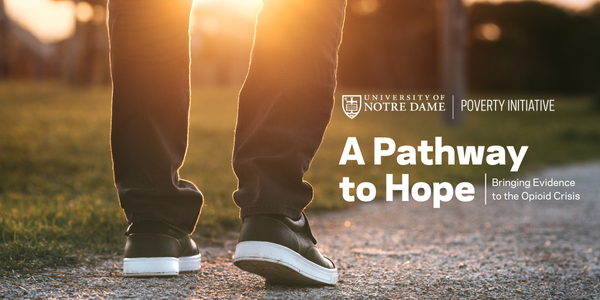In a thought-provoking session of the new ThinkND Series entitled “Raising Resilient Children: The First 1000 Days,” hosts Neil Boothby and Carrie Quinn ’96 embarked on a deep dive into the foundational period of childhood that sets the trajectory for long-term outcomes in life. They unpacked the principles that underpin what resilience means for young individuals and how pivotal those initial days can be.
The episode brimmed with insights on the critical role of self-regulation—a skill that begins to form from a tender age and has enduring effects on an individual’s journey through life. The conversation laid out clear strategies for parents to nurture self-regulation amongst their children, emphasizing co-regulation, the conscious labeling of emotions, and engaging in simple yet effective activities like “Simon Says” to foster impulse control.
At the heart of the discussion lay the profound importance of secure attachments and nurturing relationships between children and adults. Neil Boothby highlighted that these bonds are potent buffers against toxic stress, shaping various outcomes from interpersonal relationships to academic and career successes, as well as mental health prospects.
With a careful eye on the influence of external factors like social interactions and nutrition, the hosts painted a picture of a child’s development as not just a byproduct of their immediate surroundings but also of the broader ecosystem which can either attenuate or amplify resilience. The nuanced portrayal of these environmental impacts showed the intricacies of how biology and resilience intersect in childhood development.
Delving into contexts of economic disadvantage, love, interaction, and nutrition were underscored as being of utmost importance for laying the building blocks for a prosperous start in life. Parents, as Boothby and Quinn illustrated, can be the architects of empowerment for their children, integrating simple yet meaningful interactions into their hectic schedules to lay the groundwork for school readiness and foundational literacy and numeracy skills.
Listeners were reminded of the incredible potency they hold in their hands as parents—the power to insulate their offspring from the harrowing effects of stress and adversity. This message was bolstered by the resources announced by the hosts, including videos, tips, and materials available through the Mount Sinai Parenting Center and thinknd.edu. These are tools designed for empowering parents and providing them with additional support in preparing their children for school.
The episode unfolded with personal narratives from both hosts, adding a compelling human dimension to the discussion. Neil Boothby shared heartrending experiences of working with children in dire circumstances, bringing to light the vital need for human connectivity for children to thrive. Dr. Quinn offered a glimpse into the journey that led her to pediatric medicine and her deep-seated commitment to understanding and nurturing children’s developmental needs, which eventually culminated in the founding of the Mount Sinai Parenting Center.
Concurrent with personal storytelling was a foray into the science of stress. Boothby explained how toxic stress can alter hormonal balances in a way that is detrimental to neuronal health and even genetic expressions. This exposition pointed to broader implications, illustrating long-term health risks such as heart disease, autoimmune disorders, and various mental health issues stemming from an accumulation of adversities early in life.
What emerged from the dialogue was an emphasis on the need for early intervention and support programs as a crucial strategy in mitigating the effects of adversity on children’s development and overall well-being. Quinn articulated how the field of early childhood development has mapped out specific domains such as language, social-emotional, cognitive, and physical development. This research underscores the value of environments that encourage language-rich interactions, highlighting how the number of words a child hears can significantly influence their language development and future literacy skills.\
Carrie Quinn ’96 emphasized the importance of translating scientific knowledge into practical and actionable activities for parents and caregivers. The success story shared through the parenting center’s mission to ensure that every healthcare provider working with young children is trained in child development science underscores the center’s dedication to fostering growth from inception to the classroom.
Notre Dame’s ThinkND Podcast episode was also a platform where the interplay between the university’s mission and early childhood development was examined—a crossroads where education and community service meet. By aligning efforts with Notre Dame’s mission “to serve a world in need,” they highlighted the ways in which these initiatives bolster democracy, address mental health challenges, and tackle poverty.
The hosts concluded the session by acknowledging the indispensable role of early development in preparing children for success later in life, pointing to the connections between individual well-being and broader societal benefits such as peaceful relationships and community harmony.
As the episode drew to a close, Boothby expressed his heartfelt gratitude towards Quinn for her trail-blazing work and announced the continuation of the series that would delve further into the strategies for fostering resilience and providing routes out of adversity for marginalized children. It was a session that not only shed light on the developmental milestones critical to raising resilient children but also inspired the listeners on the ThinkND Podcast to take actionable steps towards nurturing the next generation.





